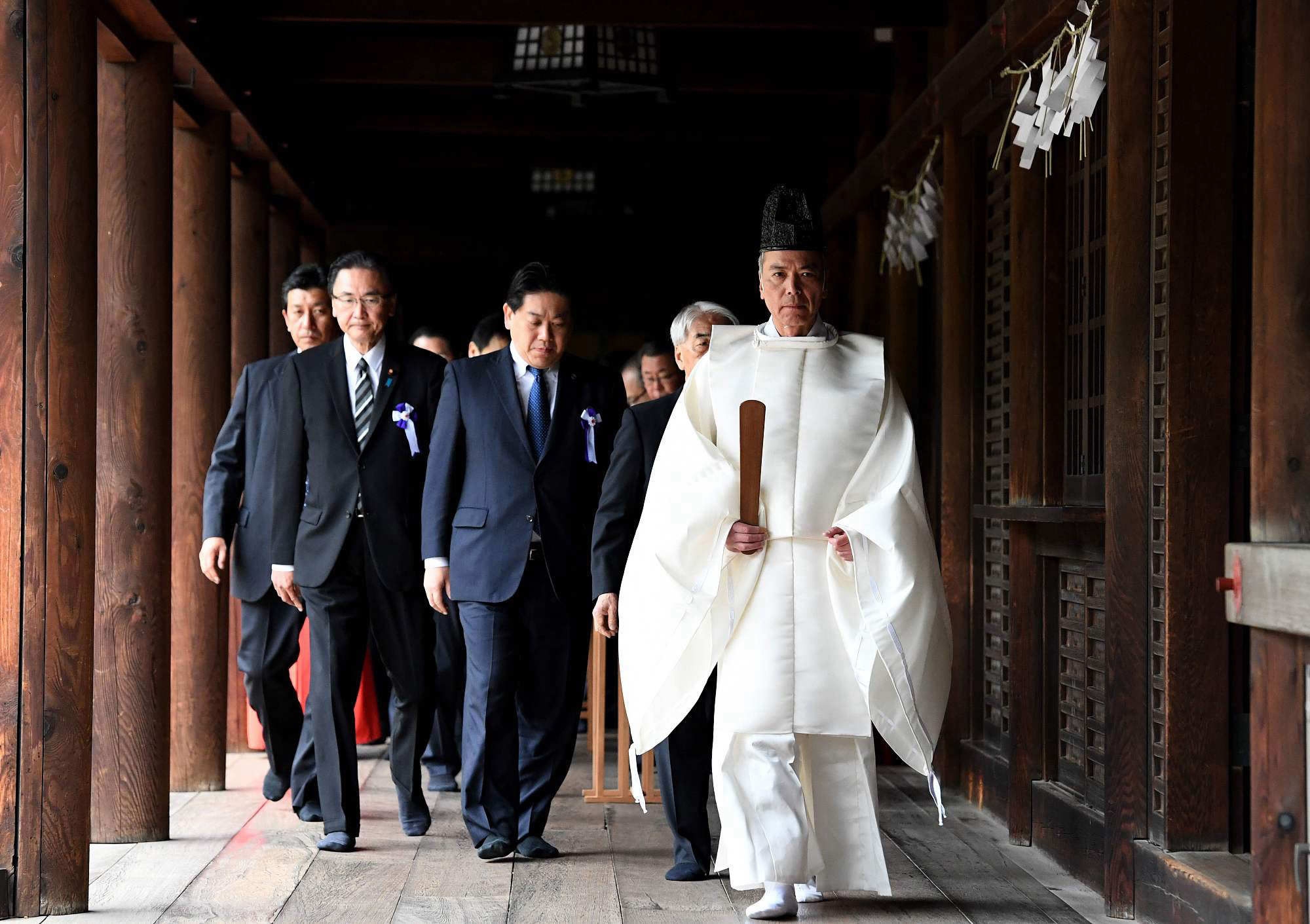
A Chinese Foreign Ministry spokesperson on Friday urged Japan to "make a clean break with militarism" after Japanese Prime Minister Shinzo Abe sent a ritual offering to the notorious Yasukuni Shrine.
"China has always firmly opposed these kinds of acts by Japanese politicians," spokesman Lu Kang said at a routine press briefing.
"Japan should abide by the spirit of the four political documents between the two countries, earnestly implement their four-point principled agreement reached in late 2014, and reflect deeply on the history of aggression," he added.
He urged the Japanese side to obtain the trust of neighboring Asian countries and the international community through action.
Abe has not visited the Yasukuni Shrine since December 2013, a year after he became prime minister for the second time. Instead, he makes the same "masakaki" offerings for the country's spring and autumn festivals.
The offering at the Yasukuni Shrine followed the approval by Japan’s education ministry of the inclusion of "jukendo" or bayonet fighting in middle school students’ physical education curriculum. That has raised concerns of reviving nostalgia for militarism among students.
According to Kyodo News, a group of lawmakers from both the ruling and opposition camps visited the controversial site in central Tokyo Friday morning. They are expected to go to the shrine at some point during the festival that ends Sunday, the report added.
The Yasukuni shrine honors over two million Japanese war dead, including 14 A-Class criminals like Hideki Tojo, who was hanged by an Allied tribunal.
Over the past few years, visits by Japanese government officials to the infamous shrine has angered China and South Korea, which regard it as a symbol of past Japanese militarism that killed millions in both countries during World War II.
China said Japan’s past military aggression brought enormous suffering to the people of China and other Asian countries. Beijing has urged leaders in Tokyo to deeply reflect on Japan’s actions in World War II and handle related issues responsibly.
In early April, the prime minister's wife Akie praised the country’s ultra-nationalistic education policies and called for Japanese leaders to be allowed to visit the Yasukuni Shrine despite criticism from "neighboring countries."









